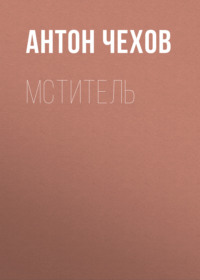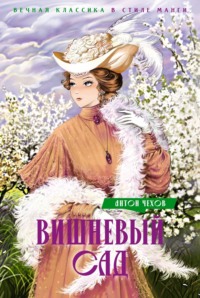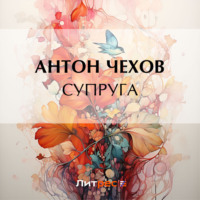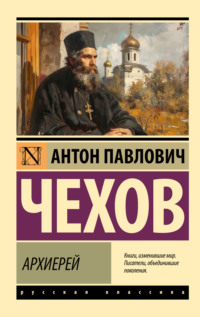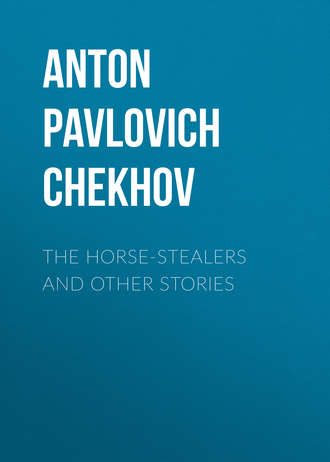 полная версия
полная версияThe Horse-Stealers and Other Stories
"You seem to be frightened of me, too.."
"Come, what next! What should I be afraid of you for? I see… I understand… You came in, and not just anyhow, but you made the sign of the cross, you bowed, all decent and proper… I understand… One can give you bread… I am a widower, I don't heat the stove, I sold the samovar… I am too poor to keep meat or anything else, but bread you are welcome to."
At that moment something began growling under the bench: the growl was followed by a hiss. Artyom started, drew up his legs, and looked enquiringly at the hunter.
"It's my dog worrying your cat," said the hunter. "You devils!" he shouted under the bench. "Lie down. You'll be beaten. I say, your cat's thin, mate! She is nothing but skin and bone."
"She is old, it is time she was dead… So you say you are from
Vyazovka?"
"I see you don't feed her. Though she's a cat she's a creature.. every breathing thing. You should have pity on her!"
"You are a queer lot in Vyazovka," Artyom went on, as though not listening. "The church has been robbed twice in one year.. To think that there are such wicked men! So they fear neither man nor God! To steal what is the Lord's! Hanging's too good for them! In old days the governors used to have such rogues flogged."
"However you punish, whether it is with flogging or anything else, it will be no good, you will not knock the wickedness out of a wicked man."
"Save and preserve us, Queen of Heaven!" The forester sighed abruptly. "Save us from all enemies and evildoers. Last week at Volovy Zaimishtchy, a mower struck another on the chest with his scythe.. he killed him outright! And what was it all about, God bless me! One mower came out of the tavern.. drunk. The other met him, drunk too."
The young man, who had been listening attentively, suddenly started, and his face grew tense as he listened.
"Stay," he said, interrupting the forester. "I fancy someone is shouting."
The hunter and the forester fell to listening with their eyes fixed on the window. Through the noise of the forest they could hear sounds such as the strained ear can always distinguish in every storm, so that it was difficult to make out whether people were calling for help or whether the wind was wailing in the chimney. But the wind tore at the roof, tapped at the paper on the window, and brought a distinct shout of "Help!"
"Talk of your murderers," said the hunter, turning pale and getting up. "Someone is being robbed!"
"Lord have mercy on us," whispered the forester, and he, too, turned pale and got up.
The hunter looked aimlessly out of window and walked up and down the hut.
"What a night, what a night!" he muttered. "You can't see your hand before your face! The very time for a robbery. Do you hear? There is a shout again."
The forester looked at the ikon and from the ikon turned his eyes upon the hunter, and sank on to the bench, collapsing like a man terrified by sudden bad news.
"Good Christian," he said in a tearful voice, "you might go into the passage and bolt the door. And we must put out the light."
"What for?"
"By ill-luck they may find their way here… Oh, our sins!"
"We ought to be going, and you talk of bolting the door! You are a clever one! Are you coming?"
The hunter threw his gun over his shoulder and picked up his cap.
"Get ready, take your gun. Hey, Flerka, here," he called to his dog. "Flerka!"
A dog with long frayed ears, a mongrel between a setter and a house-dog, came out from under the bench. He stretched himself by his master's feet and wagged his tail.
"Why are you sitting there?" cried the hunter to the forester. "You mean to say you are not going?"
"Where?"
"To help!"
"How can I?" said the forester with a wave of his hand, shuddering all over. "I can't bother about it!"
"Why won't you come?"
"After talking of such dreadful things I won't stir a step into the darkness. Bless them! And what should I go for?"
"What are you afraid of? Haven't you got a gun? Let us go, please do. It's scaring to go alone; it will be more cheerful, the two of us. Do you hear? There was a shout again. Get up!"
"Whatever do you think of me, lad?" wailed the forester. "Do you think I am such a fool to go straight to my undoing?"
"So you are not coming?"
The forester did not answer. The dog, probably hearing a human cry, gave a plaintive whine.
"Are you coming, I ask you?" cried the hunter, rolling his eyes angrily.
"You do keep on, upon my word," said the forester with annoyance.
"Go yourself."
"Ugh!.. low cur," growled the hunter, turning towards the door.
"Flerka, here!"
He went out and left the door open. The wind flew into the hut. The flame of the candle flickered uneasily, flared up, and went out.
As he bolted the door after the hunter, the forester saw the puddles in the track, the nearest pine-trees, and the retreating figure of his guest lighted up by a flash of lightning. Far away he heard the rumble of thunder.
"Holy, holy, holy," whispered the forester, making haste to thrust the thick bolt into the great iron rings. "What weather the Lord has sent us!"
Going back into the room, he felt his way to the stove, lay down, and covered himself from head to foot. Lying under the sheepskin and listening intently, he could no longer hear the human cry, but the peals of thunder kept growing louder and more prolonged. He could hear the big wind-lashed raindrops pattering angrily on the panes and on the paper of the window.
"He's gone on a fool's errand," he thought, picturing the hunter soaked with rain and stumbling over the tree-stumps. "I bet his teeth are chattering with terror!"
Not more than ten minutes later there was a sound of footsteps, followed by a loud knock at the door.
"Who's there?" cried the forester.
"It's I," he heard the young man's voice. "Unfasten the door."
The forester clambered down from the stove, felt for the candle, and, lighting it, went to the door. The hunter and his dog were drenched to the skin. They had come in for the heaviest of the downpour, and now the water ran from them as from washed clothes before they have been wrung out.
"What was it?" asked the forester.
"A peasant woman driving in a cart; she had got off the road." answered the young man, struggling with his breathlessness. "She was caught in a thicket."
"Ah, the silly thing! She was frightened, then… Well, did you put her on the road?"
"I don't care to talk to a scoundrel like you."
The young man flung his wet cap on the bench and went on:
"I know now that you are a scoundrel and the lowest of men. And you a keeper, too, getting a salary! You blackguard!"
The forester slunk with a guilty step to the stove, cleared his throat, and lay down. The young man sat on the bench, thought a little, and lay down on it full length. Not long afterwards he got up, put out the candle, and lay down again. During a particularly loud clap of thunder he turned over, spat on the floor, and growled out:
"He's afraid… And what if the woman were being murdered? Whose business is it to defend her? And he an old man, too, and a Christian.. He's a pig and nothing else."
The forester cleared his throat and heaved a deep sigh. Somewhere in the darkness Flerka shook his wet coat vigorously, which sent drops of water flying about all over the room.
"So you wouldn't care if the woman were murdered?" the hunter went on. "Well – strike me, God – I had no notion you were that sort of man.."
A silence followed. The thunderstorm was by now over and the thunder came from far away, but it was still raining.
"And suppose it hadn't been a woman but you shouting 'Help!'?" said the hunter, breaking the silence. "How would you feel, you beast, if no one ran to your aid? You have upset me with your meanness, plague take you!"
After another long interval the hunter said:
"You must have money to be afraid of people! A man who is poor is not likely to be afraid.."
"For those words you will answer before God," Artyom said hoarsely from the stove. "I have no money."
"I dare say! Scoundrels always have money… Why are you afraid of people, then? So you must have! I'd like to take and rob you for spite, to teach you a lesson!."
Artyom slipped noiselessly from the stove, lighted a candle, and sat down under the holy image. He was pale and did not take his eyes off the hunter.
"Here, I'll rob you," said the hunter, getting up. "What do you think about it? Fellows like you want a lesson. Tell me, where is your money hidden?"
Artyom drew his legs up under him and blinked. "What are you wriggling for? Where is your money hidden? Have you lost your tongue, you fool? Why don't you answer?"
The young man jumped up and went up to the forester.
"He is blinking like an owl! Well? Give me your money, or I will shoot you with my gun."
"Why do you keep on at me?" squealed the forester, and big tears rolled from his eyes. "What's the reason of it? God sees all! You will have to answer, for every word you say, to God. You have no right whatever to ask for my money."
The young man looked at Artyom's tearful face, frowned, and walked up and down the hut, then angrily clapped his cap on his head and picked up his gun.
"Ugh!.. ugh!.. it makes me sick to look at you," he filtered through his teeth. "I can't bear the sight of you. I won't sleep in your house, anyway. Good-bye! Hey, Flerka!"
The door slammed and the troublesome visitor went out with his dog… Artyom bolted the door after him, crossed himself, and lay down.
AN ACTOR'S END
SHTCHIPTSOV, the "heavy father" and "good-hearted simpleton," a tall and thick-set old man, not so much distinguished by his talents as an actor as by his exceptional physical strength, had a desperate quarrel with the manager during the performance, and just when the storm of words was at its height felt as though something had snapped in his chest. Zhukov, the manager, as a rule began at the end of every heated discussion to laugh hysterically and to fall into a swoon; on this occasion, however, Shtchiptsov did not remain for this climax, but hurried home. The high words and the sensation of something ruptured in his chest so agitated him as he left the theatre that he forgot to wash off his paint, and did nothing but take off his beard.
When he reached his hotel room, Shtchiptsov spent a long time pacing up and down, then sat down on the bed, propped his head on his fists, and sank into thought. He sat like that without stirring or uttering a sound till two o'clock the next afternoon, when Sigaev, the comic man, walked into his room.
"Why is it you did not come to the rehearsal, Booby Ivanitch?" the comic man began, panting and filling the room with fumes of vodka. "Where have you been?"
Shtchiptsov made no answer, but simply stared at the comic man with lustreless eyes, under which there were smudges of paint.
"You might at least have washed your phiz!" Sigaev went on. "You are a disgraceful sight! Have you been boozing, or.. are you ill, or what? But why don't you speak? I am asking you: are you ill?"
Shtchiptsov did not speak. In spite of the paint on his face, the comic man could not help noticing his striking pallor, the drops of sweat on his forehead, and the twitching of his lips. His hands and feet were trembling too, and the whole huge figure of the "good-natured simpleton" looked somehow crushed and flattened. The comic man took a rapid glance round the room, but saw neither bottle nor flask nor any other suspicious vessel.
"I say, Mishutka, you know you are ill!" he said in a flutter.
"Strike me dead, you are ill! You don't look yourself!"
Shtchiptsov remained silent and stared disconsolately at the floor.
"You must have caught cold," said Sigaev, taking him by the hand.
"Oh, dear, how hot your hands are! What's the trouble?"
"I wa-ant to go home," muttered Shtchiptsov.
"But you are at home now, aren't you?"
"No… To Vyazma.."
"Oh, my, anywhere else! It would take you three years to get to your Vyazma… What? do you want to go and see your daddy and mummy? I'll be bound, they've kicked the bucket years ago, and you won't find their graves.."
"My ho-ome's there."
"Come, it's no good giving way to the dismal dumps. These neurotic feelings are the limit, old man. You must get well, for you have to play Mitka in 'The Terrible Tsar' to-morrow. There is nobody else to do it. Drink something hot and take some castor-oil? Have you got the money for some castor-oil? Or, stay, I'll run and buy some."
The comic man fumbled in his pockets, found a fifteen-kopeck piece, and ran to the chemist's. A quarter of an hour later he came back.
"Come, drink it," he said, holding the bottle to the "heavy father's" mouth. "Drink it straight out of the bottle… All at a go! That's the way… Now nibble at a clove that your very soul mayn't stink of the filthy stuff."
The comic man sat a little longer with his sick friend, then kissed him tenderly, and went away. Towards evening the jeune premier, Brama-Glinsky, ran in to see Shtchiptsov. The gifted actor was wearing a pair of prunella boots, had a glove on his left hand, was smoking a cigar, and even smelt of heliotrope, yet nevertheless he strongly suggested a traveller cast away in some land in which there were neither baths nor laundresses nor tailors..
"I hear you are ill?" he said to Shtchiptsov, twirling round on his heel. "What's wrong with you? What's wrong with you, really?."
Shtchiptsov did not speak nor stir.
"Why don't you speak? Do you feel giddy? Oh well, don't talk, I won't pester you.. don't talk.."
Brama-Glinsky (that was his stage name, in his passport he was called Guskov) walked away to the window, put his hands in his pockets, and fell to gazing into the street. Before his eyes stretched an immense waste, bounded by a grey fence beside which ran a perfect forest of last year's burdocks. Beyond the waste ground was a dark, deserted factory, with windows boarded up. A belated jackdaw was flying round the chimney. This dreary, lifeless scene was beginning to be veiled in the dusk of evening.
"I must go home!" the jeune premier heard.
"Where is home?"
"To Vyazma.. to my home.."
"It is a thousand miles to Vyazma.. my boy," sighed Brama-Glinsky, drumming on the window-pane. "And what do you want to go to Vyazma for?"
"I want to die there."
"What next! Now he's dying! He has fallen ill for the first time in his life, and already he fancies that his last hour is come… No, my boy, no cholera will carry off a buffalo like you. You'll live to be a hundred… Where's the pain?"
"There's no pain, but I.. feel."
"You don't feel anything, it all comes from being too healthy. Your surplus energy upsets you. You ought to get jolly tight – drink, you know, till your whole inside is topsy-turvy. Getting drunk is wonderfully restoring… Do you remember how screwed you were at Rostov on the Don? Good Lord, the very thought of it is alarming! Sashka and I together could only just carry in the barrel, and you emptied it alone, and even sent for rum afterwards… You got so drunk you were catching devils in a sack and pulled a lamp-post up by the roots. Do you remember? Then you went off to beat the Greeks.."
Under the influence of these agreeable reminiscences Shtchiptsov's face brightened a little and his eyes began to shine.
"And do you remember how I beat Savoikin the manager?" he muttered, raising his head. "But there! I've beaten thirty-three managers in my time, and I can't remember how many smaller fry. And what managers they were! Men who would not permit the very winds to touch them! I've beaten two celebrated authors and one painter!"
"What are you crying for?"
"At Kherson I killed a horse with my fists. And at Taganrog some roughs fell upon me at night, fifteen of them. I took off their caps and they followed me, begging: 'Uncle, give us back our caps.' That's how I used to go on."
"What are you crying for, then, you silly?"
"But now it's all over.. I feel it. If only I could go to
Vyazma!"
A pause followed. After a silence Shtchiptsov suddenly jumped up and seized his cap. He looked distraught.
"Good-bye! I am going to Vyazma!" he articulated, staggering.
"And the money for the journey?"
"H'm!.. I shall go on foot!"
"You are crazy.."
The two men looked at each other, probably because the same thought – of the boundless plains, the unending forests and swamps – struck both of them at once.
"Well, I see you have gone off your head," the jeune premier commented. "I'll tell you what, old man… First thing, go to bed, then drink some brandy and tea to put you into a sweat. And some castor-oil, of course. Stay, where am I to get some brandy?"
Brama-Glinsky thought a minute, then made up his mind to go to a shopkeeper called Madame Tsitrinnikov to try and get it from her on tick: who knows? perhaps the woman would feel for them and let them have it. The jeune premier went off, and half an hour later returned with a bottle of brandy and some castor-oil. Shtchiptsov was sitting motionless, as before, on the bed, gazing dumbly at the floor. He drank the castor-oil offered him by his friend like an automaton, with no consciousness of what he was doing. Like an automaton he sat afterwards at the table, and drank tea and brandy; mechanically he emptied the whole bottle and let the jeune premier put him to bed. The latter covered him up with a quilt and an overcoat, advised him to get into a perspiration, and went away.
The night came on; Shtchiptsov had drunk a great deal of brandy, but he did not sleep. He lay motionless under the quilt and stared at the dark ceiling; then, seeing the moon looking in at the window, he turned his eyes from the ceiling towards the companion of the earth, and lay so with open eyes till the morning. At nine o'clock in the morning Zhukov, the manager, ran in.
"What has put it into your head to be ill, my angel?" he cackled, wrinkling up his nose. "Aie, aie! A man with your physique has no business to be ill! For shame, for shame! Do you know, I was quite frightened. 'Can our conversation have had such an effect on him?' I wondered. My dear soul, I hope it's not through me you've fallen ill! You know you gave me as good.. er.. And, besides, comrades can never get on without words. You called me all sorts of names.. and have gone at me with your fists too, and yet I am fond of you! Upon my soul, I am. I respect you and am fond of you! Explain, my angel, why I am so fond of you. You are neither kith nor kin nor wife, but as soon as I heard you had fallen ill it cut me to the heart."
Zhukov spent a long time declaring his affection, then fell to kissing the invalid, and finally was so overcome by his feelings that he began laughing hysterically, and was even meaning to fall into a swoon, but, probably remembering that he was not at home nor at the theatre, put off the swoon to a more convenient opportunity and went away.
Soon after him Adabashev, the tragic actor, a dingy, short-sighted individual who talked through his nose, made his appearance… For a long while he looked at Shtchiptsov, for a long while he pondered, and at last he made a discovery.
"Do you know what, Mifa?" he said, pronouncing through his nose "f" instead of "sh," and assuming a mysterious expression. "Do you know what? You ought to have a dose of castor-oil!"
Shtchiptsov was silent. He remained silent, too, a little later as the tragic actor poured the loathsome oil into his mouth. Two hours later Yevlampy, or, as the actors for some reason called him, Rigoletto, the hairdresser of the company, came into the room. He too, like the tragic man, stared at Shtchiptsov for a long time, then sighed like a steam-engine, and slowly and deliberately began untying a parcel he had brought with him. In it there were twenty cups and several little flasks.
"You should have sent for me and I would have cupped you long ago," he said, tenderly baring Shtchiptsov's chest. "It is easy to neglect illness."
Thereupon Rigoletto stroked the broad chest of the "heavy father" and covered it all over with suction cups.
"Yes." he said, as after this operation he packed up his paraphernalia, crimson with Shtchiptsov's blood. "You should have sent for me, and I would have come… You needn't trouble about payment… I do it from sympathy. Where are you to get the money if that idol won't pay you? Now, please take these drops. They are nice drops! And now you must have a dose of this castor-oil. It's the real thing. That's right! I hope it will do you good. Well, now, good-bye.."
Rigoletto took his parcel and withdrew, pleased that he had been of assistance to a fellow-creature.
The next morning Sigaev, the comic man, going in to see Shtchiptsov, found him in a terrible condition. He was lying under his coat, breathing in gasps, while his eyes strayed over the ceiling. In his hands he was crushing convulsively the crumpled quilt.
"To Vyazma!" he whispered, when he saw the comic man. "To Vyazma."
"Come, I don't like that, old man!" said the comic man, flinging up his hands. "You see.. you see.. you see, old man, that's not the thing! Excuse me, but.. it's positively stupid.."
"To go to Vyazma! My God, to Vyazma!"
"I.. I did not expect it of you," the comic man muttered, utterly distracted. "What the deuce do you want to collapse like this for? Aie.. aie.. aie!.. that's not the thing. A giant as tall as a watch-tower, and crying. Is it the thing for actors to cry?"
"No wife nor children," muttered Shtchiptsov. "I ought not to have gone for an actor, but have stayed at Vyazma. My life has been wasted, Semyon! Oh, to be in Vyazma!"
"Aie.. aie.. aie!.. that's not the thing! You see, it's stupid.. contemptible indeed!"
Recovering his composure and setting his feelings in order, Sigaev began comforting Shtchiptsov, telling him untruly that his comrades had decided to send him to the Crimea at their expense, and so on, but the sick man did not listen and kept muttering about Vyazma.. At last, with a wave of his hand, the comic man began talking about Vyazma himself to comfort the invalid.
"It's a fine town," he said soothingly, "a capital town, old man! It's famous for its cakes. The cakes are classical, but – between ourselves – h'm! – they are a bit groggy. For a whole week after eating them I was.. h'm!.. But what is fine there is the merchants! They are something like merchants. When they treat you they do treat you!"
The comic man talked while Shtchiptsov listened in silence and nodded his head approvingly.
Towards evening he died.



